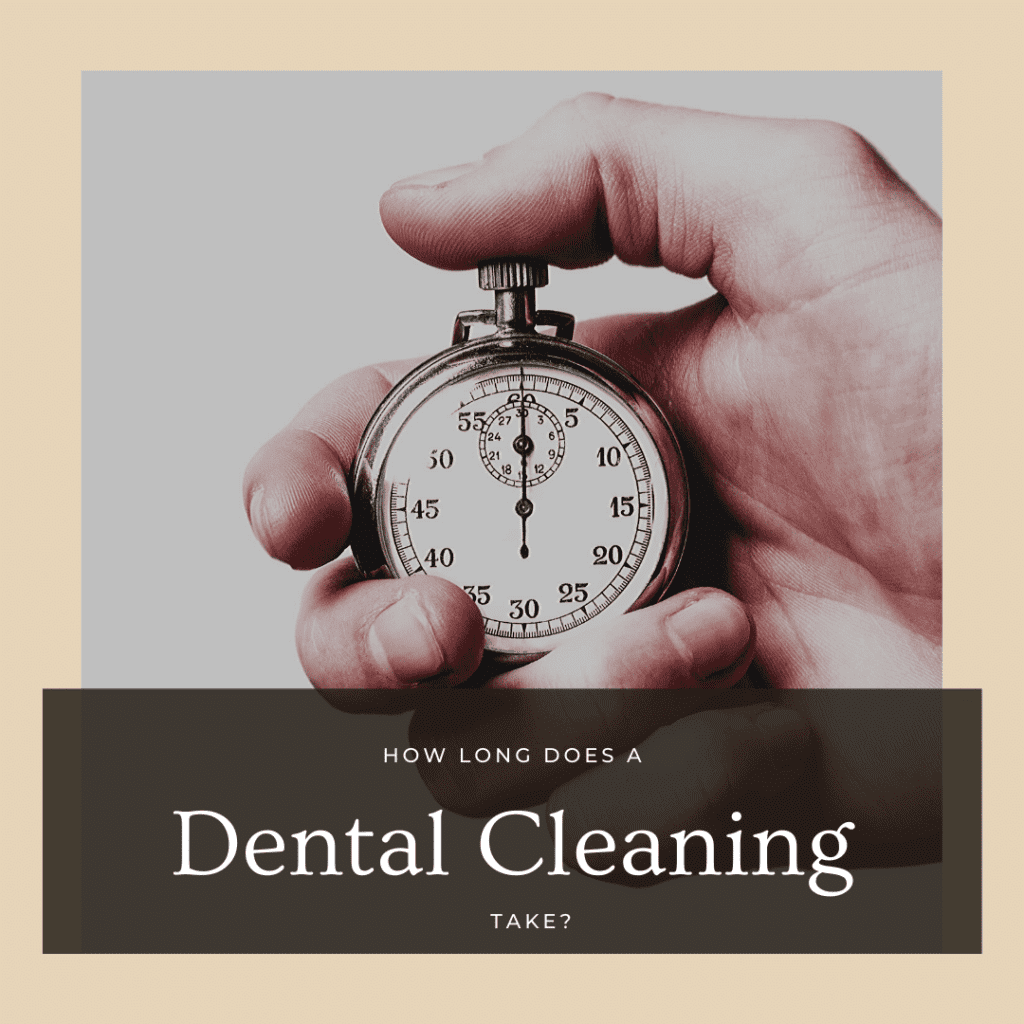Dental cleanings are essential preventative procedures used to maintain your oral health by decreasing the risk of tooth decay and gum disease. The American Dental Association recommends visiting your local dental office at least once every six months to have a dental cleaning. However many people have busy schedules and may tell themselves they simply don’t have time to go to the dentist.
Luckily, your general dentist can complete routine cleanings quicker than you think. In most cases, a professional teeth cleaning procedure can be completed in as little as 30 minutes! This means that you can squeeze a dental cleaning into your lunch break if need be. However, how long your dental cleaning takes will depend on the type of dental cleaning you are having.
The vast majority of people who visit the dentist for a cleaning will need what is called a prophylaxis cleaning. Although this may sound complicated, prophylaxis simply means “to prevent disease”. Therefore, this type of cleaning is a simple preventative dental cleaning.
During a prophylaxis cleaning, a dental hygienist will use a dental scaler to gently scrape excess dental plaque and tartar from your teeth. The difference between plaque and tartar is that tartar is hardened plaque that can only be removed with a dental scaler. Plaque, on the other hand, is softer and can be removed with regular brushing and flossing. Since both plaque and tartar are responsible for causing tooth decay and gum disease, removing them from the tooth’s surface helps to prevent these issues from occurring.
After using the scaler, your hygienist will brush your teeth with a gritty toothpaste and floss in between them to remove any remaining debris. Your teeth will then be rinsed and treated with fluoride. Fluoride is topically applied and works to strengthen tooth enamel and make it harder for plaque to stick to the enamel.
Every type of dental cleaning will begin with a basic prophylaxis cleaning. However, if you are affected by gum disease, haven’t had a cleaning in several years, or have excessive tartar deposits on your teeth, you will likely require an additional, specialized cleaning. In these cases, your dental cleaning appointment will take longer and can last about an hour or so, depending how extensive a cleaning is required.
One commonly performed specialized cleaning is known as a deep cleaning, or scaling and root planing. Used to treat gum disease, this type of cleaning uses a dental scaler to clean in the gum pockets, as well as along the tooth root. This is a common location for plaque accumulation. Unfortunately when plaque accumulates here, it causes the gums to become infected and they will then start pulling away from the teeth, or receding. After plaque is removed, the root surface will be smoothed in order to encourage the gums to reattach.
If you are affected by an advanced form of gum disease called periodontitis, you will need what is known as a periodontal maintenance cleaning. This type of cleaning is basically a scaling and root planing cleaning scheduled at a more frequent rate than the typical every six months. This is because frequent periodontal cleanings help to keep plaque populations under control to prevent the disease from progressing.
The final type of cleaning is one that very few people require. Called a gross debridement, this type of cleaning is used when there are significant amounts of tartar buildup on the enamel. Because gross debridement cleanings usually require the use of anesthetics and highly specialized dental tools, they are generally performed over the course of multiple dental appointments. Out of all the types of dental cleanings, this type takes the longest.
Overall, most dental cleanings are quick preventative dental procedures that can be completed in about 30 minutes to an hour. By only sacrificing an hour every six months, you can greatly reduce your risk of dental issues and keep your smile healthy. However, more involved cleanings can take longer, so you may need to discuss what type of cleaning your dentist recommends so you can plan accordingly.

